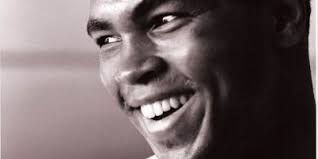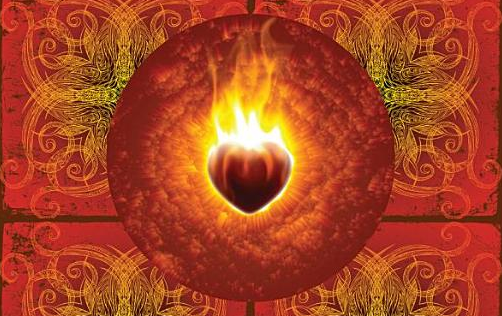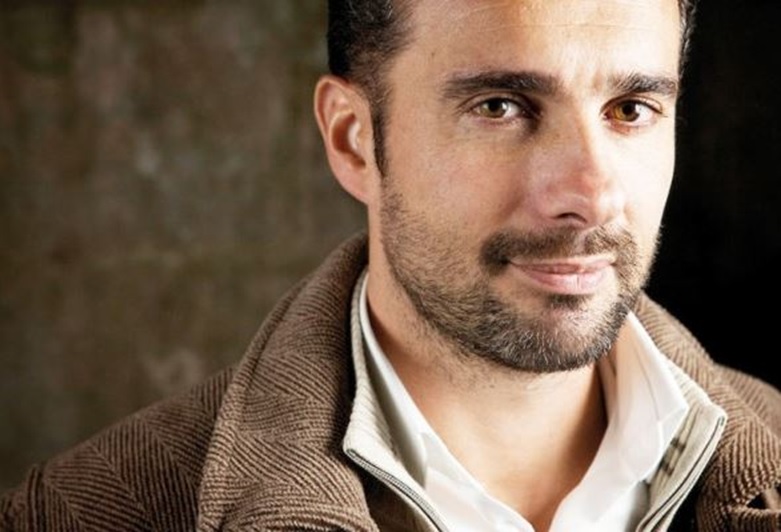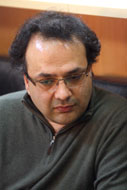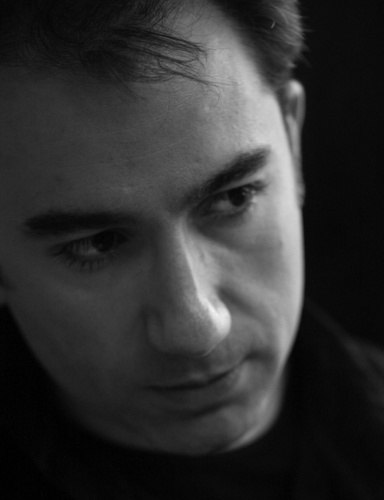Kabir Helminski
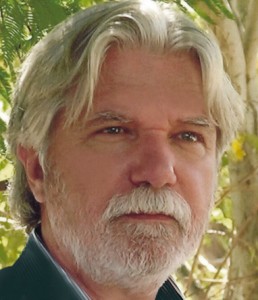 Many spiritually inclined people, and especially those from a Muslim background, face a double alienation in today’s world. On the one hand, they are alienated from the mad rush of contemporary society with its commercialization, its ugliness, its pandering to the ego, and its lack of meaning. On the other hand, they are equally alienated from various expressions of Islam that fail to inspire them. Too often, the teachings of Islam as they are presented seem irrelevant, authoritarian, dogmatic, and one-dimensional.
Many spiritually inclined people, and especially those from a Muslim background, face a double alienation in today’s world. On the one hand, they are alienated from the mad rush of contemporary society with its commercialization, its ugliness, its pandering to the ego, and its lack of meaning. On the other hand, they are equally alienated from various expressions of Islam that fail to inspire them. Too often, the teachings of Islam as they are presented seem irrelevant, authoritarian, dogmatic, and one-dimensional.
Whereas a life absorbed in acquiring material gains and ego satisfactions leads first to superficial pleasure, in the end it only leads to dissipation and spiritual loss. And a life molded by pre-packaged religious beliefs, especially those that are poorly adapted to contemporary realities, leads to a spiritual dead-end.
In some cases, these Muslims may turn to other spiritual traditions where there seems to be a more explicit spirituality, including various New Age teachings, Buddhism, and techniques like yoga, tai chi, chi gong.
Today we are challenged by the acceleration of time, a glut of impressions and information, the commodification and depersonalization of everyday life. We are drifting toward a society where increasingly it’s every man or woman for himself. And yet the longing and thirst for spiritual meaning only increases.
The traditional support systems for spiritual development have been greatly weakened in the modern world, but the essential knowledge for the education of the heart still exists. Every human being has a capacity to directly experience the Divine. No other achievement can substitute for it, and nothing less will ultimately satisfy the heart.
The Path we are talking about proposes that the purpose of existence is to know and love God, and to love each other within God. If we accept this proposition, then the most essential education is the education of the heart.
The prevailing culture of consumerism, mass entertainment, materialism and neurotic individualism makes it extremely difficult to connect with our hearts, and through our hearts with our Divine Origin.
Yet through spiritual practices that quiet the superficial mind and reduce our reactive emotions, a capacity of the heart for direct experience of Divine Presence can be awakened.
Struggling alone as solitary people, the prevailing tide is against us. Working together with adequate knowledge and commitment, our transformation is almost assured. Our energies reinforce each other, our love grows, our hearts awaken, and we can even enjoy the journey.
This is both an ancient path and a living tradition. It has always served human beings with a longing, leading them to true security and happiness.
We call it a path because it is a spiritual journey in which the soul is transformed through levels of understanding and increasing love. Transformation is a key word. Every true encounter with the Divine transforms us. The transformation of the human being is the essence of spirituality and of human life itself. What satisfaction can there be in life if we are not learning, increasing our understanding and our capacity for love?
There are two very essential points to understand.
Why is it that human beings, even those who claim to follow one of the heavenly religions, too often remain unchanged, unable to live up to their hopes, unable to consistently live the life they know is best? Endless preaching, sermonizing, and moralizing accomplishes little if we fail to understand the ways in which human beings are asleep and what is needed to wake up.
We can be asleep in an ego-driven materialistic life, but do we understand how we can also be asleep in a religious practice that fails to understand the purpose of religion?
Religion warns us against idolatry, false gods, and turning our backs on what is truly holy. This could describe people who become preoccupied with externals, who value appearance over reality, who worship for superficial reasons or for the sake of their egos.
The Qur’an describes the degeneration of authentic religion of the heart into a code of oppressive rules. Religious Law is necessary for establishing limits, for preventing harm and injustice, and for codifying religious practice. But knowledge of the Law does not necessarily open the heart. The Law may prevent us from doing harm but what will actually make us better people?
The Path of the Heart follows a map described in the Holy Qur’an. The Qur’anic revelation describes the nature of the human being, the nature of the Absolute, and finally the purpose of existence, which is essentially to know and love God.
Between the state of the individual human ego and the Absolute there seems to be a huge gap. The Qur’an also describes human beings who are less aware than cattle. The prevailing culture of consumerism, mass entertainment, materialism and neurotic individualism makes it extremely difficult to connect with our Divine Origin.
Fortunately every human being has a capacity to bridge this gap and the capacity can be described with words like presence, heart awareness, or to use traditional terms, taqwa (or God-consciousness), hudhur (presence). The knowledge and practice of the spiritual path has been hidden or veiled, expressed and revealed only in private circles under particular conditions. But a time has come when it is necessary that this knowledge be made available to as many people as possible.
This knowledge brings a new understanding of the rituals and practices that are the foundation of the religion. Salaah comes to be understood as an ideal method for developing presence and experiencing surrender with the whole of the body, emotions, mind, and spiritual faculties. Ablutions cleanse not only the physical body but the heart and the electromagnetic field of the body. Dhikr is more than thinking about Allah, it is a means of raising our vibrational frequency. And so the spiritual practices that come down to us through the tradition begin to be understood as methods for changing ourselves, and this means nothing less than increasing the capacity of our being.
We have recently initiated The Baraka Institute (barakainstitute.org) to try to meet the needs we have described. Baraka exists to bring people into contact with this living tradition of spiritual transformation and to do it in ways that work in today’s world. We can use a wide spectrum of media, new formats of social networking and community.
We wish to unify the different and separate strands of conscious spirituality, recognizing that we do have one coherent message, even if we have slightly different perspectives, cultural styles, and personal qualities. The Prophet Muhammad (peace be upon him) said, “The differences of opinion in our community are a mercy from God.” We can benefit by hearing, seeing, and experiencing a variety of teachings and teachers, assured that the underlying coherence of this traditional spirituality will prevail.
The challenge is within ourselves. The enemy, so to speak, is not outside, but it is within ourselves. Our greatest enemy is an aspect of ourselves that numbs us, rationalizes and justifies our heedlessness, compromises our highest values, or simply forgets, again and again.
This wisdom cannot remain hidden in the tekkyes, dergahs, and khaneqahs, it must be brought into the mainstream of life, and into the media. Nor can it remain merely a form of book learning. More than anything else, it is our direct, personal contact with people of heart that helps us to sustain the process of transformation. Just as an athlete’s game is improved by playing with people whose skills are highly developed, so, too, in spirituality, we are inspired and matured through association with people who have devoted their lives to spiritual wisdom and realization.
Finally, we trust in the spiritual resonance, the grace and support of the Unseen. Those who feel a longing for Divine Beauty are those who will be beautified by the Divine. So the hero of this story is Allah. The hope is because of Allah. The power is with Allah. And the love is from Allah to us.

